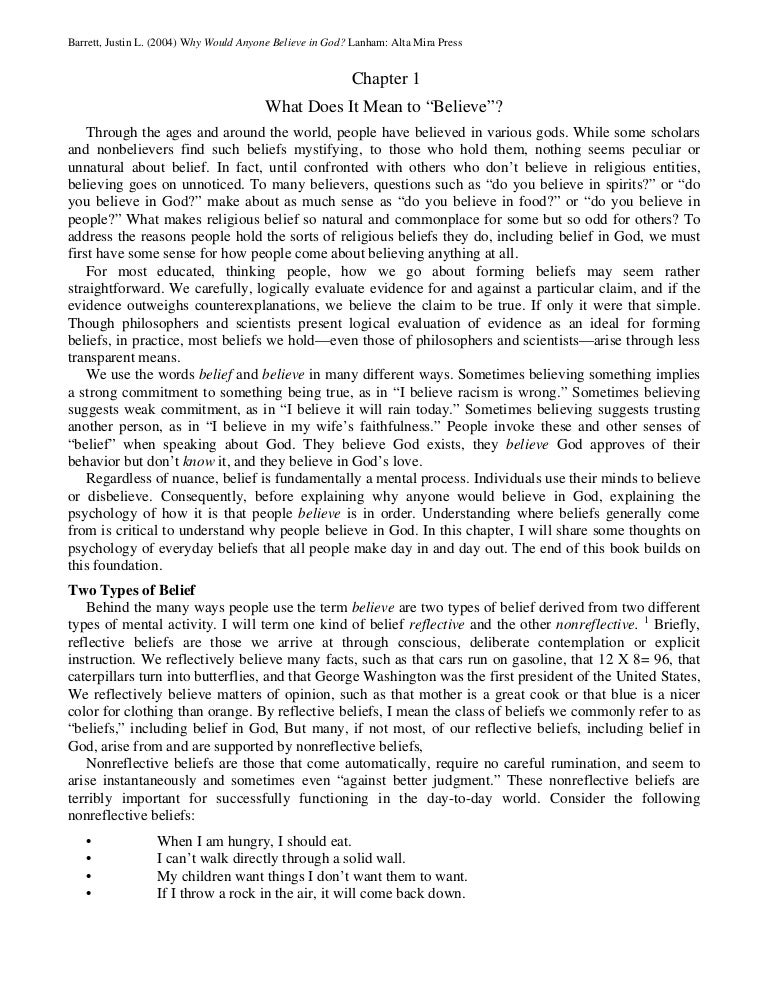

This will be demonstrated by answering the following questions: He justifies this definition by alleging that it is the common idea of mind.The author defines mind so that the concept has the resemblance he desires to the concept of God.95), and “one cannot attack belief in God as unjustified on empirical grounds … and hold that belief in minds is justified” (p. In chapter 7 the author presents an extended argument that “believing in other minds and believing in God are comparably natural beliefs” (p. Belief in Minds and Belief in GodsĪfter spending 93 pages describing how belief in gods is a naturalistic phenomenon, Barrett turns to spiritualism in the form of the antique dualism that is at the heart of his and other religions: a human being consists of two kinds of parts-the demonstrable, physical body, and one or more indemonstrable, hypothetical entities that are adduced to “explain” certain biological facts. The most appropriate word denoting such belief is spiritualism ( Oxford English Dictionary sub spiritualism, #4), which includes theism. So, he is explaining not specifically why people “believe in God” but why they believe in spirits including his god, The Trinity. 21, 40, 55-56) belief in which is promoted by the unconscious mental processes he is describing. He makes this clear by references to ghosts, spirits of ancestors, and local (forest) spirits as “gods” (pp. 15) are actually reasons for belief in spirits (including gods). ) The present essay is a critique of arguments and statements in chapters 7 and 8, where the author departs from a scientific presentation and enters into more overtly theistic arguments.Īn important initial point: what Barrett describes as reasons for “belief in gods generally and God particularly” (p.

(Expositions of this kind were made previously by others.

He is currently a professor at Fuller Theological Seminary in Pasadena, California, which advertises that it emphasizes “the integration of psychology and Christian theology,” and that its faculty are “committed Christian disciples.” The first six chapters of Barrett’s book Why Would Anyone Believe in God? (Barrett, 2004) are a largely unexceptionable presentation of recent understanding of the primitive, unconscious mental processes that are one explanation of the existence, prevalence, and durability of belief in gods. Barrett is a psychologist who studies cognition.


 0 kommentar(er)
0 kommentar(er)
